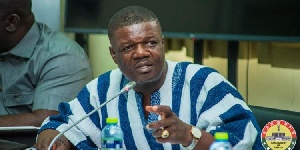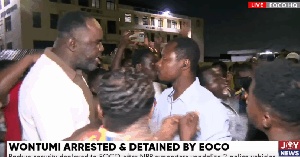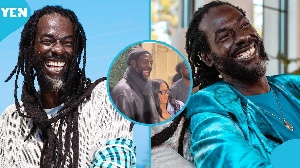- Boxing
- Athletics
- Basketball
- Bodybuilding
- Cricket
- Golf
- Handball
- Hockey
- Martial Arts
- Tennis
- Volleyball
- Other Sports

Education News of Wednesday, 28 May 2025
Source: www.ghanawebbers.com
'Let law faculties train their own lawyers' - Dafeamekpor pushes for legal education overhaul
The Majority Chief Whip, Rockson-Nelson Dafeamekpor, wants to change legal education in Ghana.
He believes the country should end the monopoly of the Ghana School of Law. Accredited university law faculties should train lawyers directly.
Speaking on Joy News’ PM Express, he called for “the democratisation of legal education.” He criticized the current admissions process as corrupted and contentious.
Dafeamekpor noted that issues began around 2018. That year, admissions to law school became problematic and controversial.
He mentioned evidence showing some people were admitted without taking entrance exams.
“This was confirmed by their own General Legal Council’s disciplinary committee,” he said. “They found 11 students who were admitted improperly.”
However, he believes more than 33 students were involved. He questioned what happened to those admitted through unfair means.
Dafeamekpor argued that the current model is unsustainable. The Ghana School of Law's central role in training lawyers needs to change.
“Faculties are already calling themselves law schools,” he pointed out. “What is a law school if it can’t train lawyers?”
He proposed allowing accredited faculties to offer professional qualifications for lawyers. The Ghana School of Law should no longer have exclusive rights.
“Makola will become one of many,” he explained. It will admit its own students and prepare them for both academic and practical phases.
Once ready, these students would face the bar exam.
Dafeamekpor suggested introducing two bar examinations each year: one in January and another in July.
Passing the January exam would allow calls to the bar in March or April. Passing in July would lead to calls in September or October.
This system aims to produce more qualified lawyers quickly.
He also mentioned that professional training could be flexible based on student needs.
“It could last one year, one and a half years, or two years maximum,” he said. “Focused students should complete it within a year.”
Dafeamekpor rejected the notion that all lawyers must enter private practice.
“There are many who are called to the bar but do not practice,” he stated. “They work in corporate law and other fields.”
He emphasized that Ghana’s public institutions need legally trained individuals at local levels.
“Many assemblies require legal minds for guidance,” he noted.
When asked about the timeline for passing the Legal Education Bill, Dafeamekpor was optimistic.
“I’m confident we can move this under a certificate of urgency,” he said. “It is a major political promise—and we will deliver it.”











